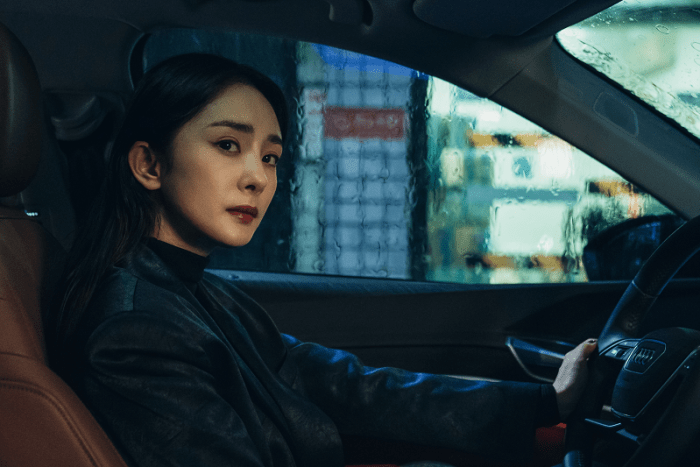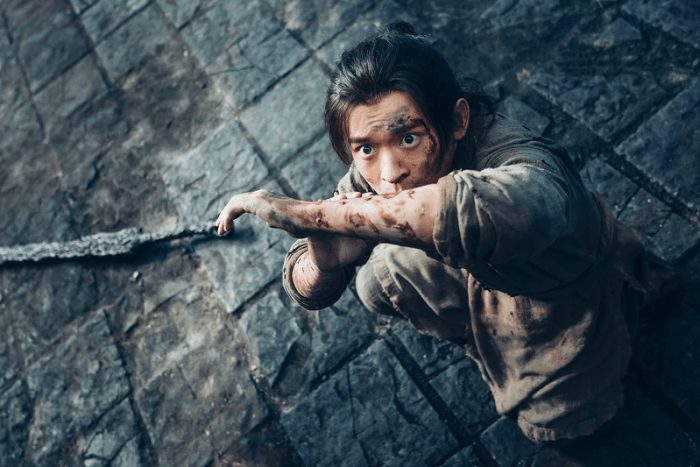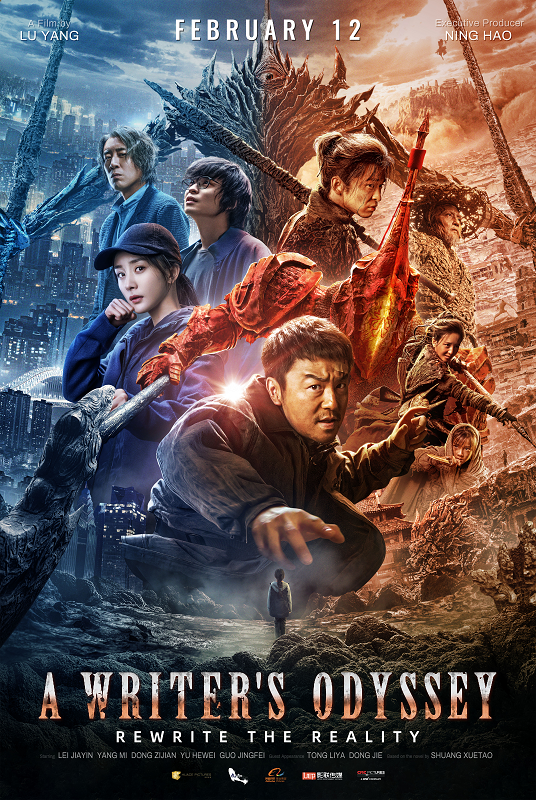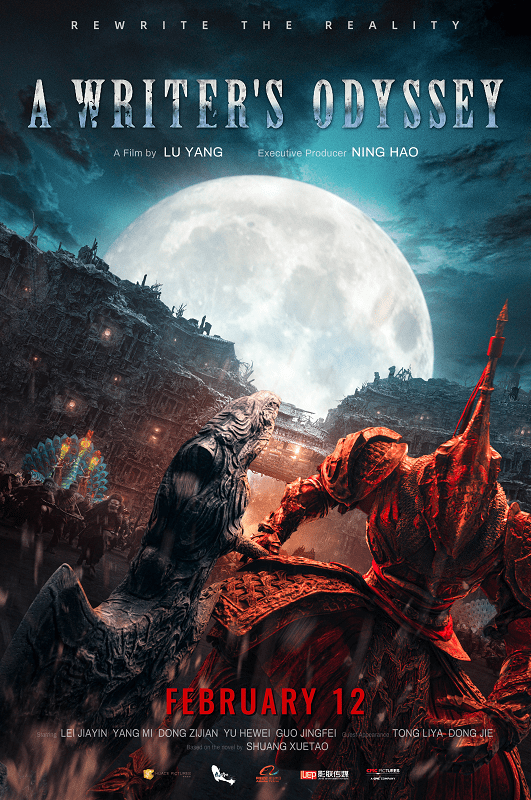A good marketing campaign will make clear what the product is about so that consumers won’t feel flummoxed about how to engage with the object. It’s partly why marketing happens, so that there’s a sense of familiarity. When it comes to movies, this is frequently tricky as marketing has to walk the line between offering enough information to entice without telling the entire story. Some trailers go so far as to feel like they tell you the entire film (thus negating the need to see the film), while others take the approach of using false footage so that a trailer is fairly useless in communicating a scene. Then there are the trailers which do something far more dangerous: misrepresent the story. It’s dangerous because audiences may feel like they’ve been tricked into seeing a different film than expected or, worse, are subjected to a story they aren’t prepared to absorb. This, of course, brings us to A Writer’s Odyssey (Ci sha xiao shuo jia) from director Lu Yang (Brotherhood of Blades), adapted from the short story Assassinate a Novelist from author Shuang Xuetao, which is billed as a two-world epic in which reality and fantasy collide as the words of a writer seem to be killing someone in reality. Except that’s only a small piece of the story and doesn’t touch at all on the themes this fantasy thriller explores. So while you get the wild ride, there’s a hard exploration of pain and loss which overshadows a lot of the fun. In combination with a loose explanation, moments of iffy CG, and a heavy script, A Writer’s Odyssey can be more of a slog than a saga.

Lei Jiayin as Guan Ning in A WRITER’S ODYSSEY.
In a faraway land in another time, Kongwen Lu (Dong Zijian) is on a quest to defeat the evil Lord Redmane, aided only by his wits and a mystical talking armor (Guo Jingfei). Kongwen, however, is unaware that each step, each trial, is being created with each key stroke of an author, Kongwen (Dong in a dual role), in his novel “Godslayer.” Neither Kongwen is aware of the other nor of the fact that with each attack on Redmane the CEO of technogiant Aladdin Corp Li Mu (Yu Hewei) earns himself a similar wound. Unable to find legal means to stop the novelist, the CIO of Aladdin Corp, Tu Ling (Yang Mi) is tasked with hiring someone to kill the novelist before he finishes his story. With the clock ticking down after Kongwen’s announcement of a deadline of three days, Tu taps aggrieved father Guan Ning (Lei Jiayin) to do the job with the promise of assistance in healing his family. But the closer to the deadline Kongwen gets, the more Guan begins to believe in the story and end of Redmane.

Yang Mi as Tu Ling in A WRITER’S ODYSSEY.
If the above summary seems like a lot, you wouldn’t be wrong. The sheer tonnage that A Writer’s Odyssey needs to set up takes up a great bit of time while also making sure to balance time in both worlds (reality vs novel), move each of the stories forward, and possess slowly escalating in scope fight scenes. In portions, Odyssey is a harrowing exploration of parental grief while also being a thrilling wuxia fantasy. Within these successfully executed portions, there is well-executed humor, character development, and deep satisfaction on a narrative level. The film’s beginning seamlessly integrates both worlds with what ends up being a dream as Guan sees his daughter being kidnapped by a monster while they’re both dressed in modern clothes and their surroundings are entirely mythical. He awakens, cold, alone, and slightly disheveled, on a hill overlooking a road. It’s within this sequence that we learn it’s been six years since his daughter was kidnapped and his dreams of this other world haunt him. This opening sets up the dramatic thriller aspects of Odyssey and is the area of the story which may surprise unaware viewers. Guan isn’t just someone connected to the novelist’s fictional world, he’s connected by way of his grief. At least, that’s my running theory as the film itself offers only the flimsiest reasoning as to why Guan dreams of the world of “Godslayer” before ever having any awareness of it. Just as the violence within Odyssey isn’t softened, allowing for some truly fun martial arts sequences, so, too, is the theme of loss and grief. Consider this your warning should you have recently lost a child or loved one as this is a key narrative aspect which is continually returned to, Guan’s pain made our own, his slow creeping hope inspiring belief in the fantastical and unlikely. This is the part that is left out of the marketing, the part that shifts Odyssey from being a Lunar New Year romp into something darker and more adult. Because this isn’t an element used just to create drama, Guan’s journey is the more interesting to follow and the resolution is one of the more cinematically conflicting pieces this side of Inception (2010).

Dong Zijian as Kongwen Lu in A WRITER’S ODYSSEY.
The thing is, though, that the moments in between lie languid, feeling strangely disconnected to the other, hurting the total momentum. Just as something becomes really interesting with Guan, the film pivots to fantasy realm Kongwen. This would be fine if both stories began in a similar place, with one dove-tailing into the other, but, from the audience’s perceptive, we’re arriving well into a novel that’s only three days from completion, compared to Guan’s tale which is easily picked up from the film’s start. It’s easy for the audience to pick up Guan’s story as the world building is unnecessary, yet the fantasy realm requires so much that it makes all the inertia created by one side to be slowed until their eventual connection finally arrives, at which point both stories hum along. But the path to get there is riddled with the kinds of stops and starts that diminish engagement. The mystical armor (called “Black Armour” in the press notes), for instance, is given no backstory whatsoever beyond what we observe, which is completely fine and in-line with the idea that we’re coming into a story several chapters late, except that comes with a trade-off of not fully understanding its general purpose beyond dark comic support for fantasy Kongwen and perhaps the best living weapon outside of the “Soul Calibur” game series. The strange bit is, then, that there are other areas where the script goes out of its way to use fantasy Kongwen to explain aspects of a land he should know everything about (or certainly more than he seems to) by sheer nature of living within the realm. This is the trouble with not only adapting a short story into film, but also the difficulty of laying the groundwork for each world to be real.

Wang Shengdi as Tangerine in A WRITER’S ODYSSEY.
Even the CG shifts between being wholly believable and wondrous. Our front seat to the attack by Redmane’s Dragon District on an opposing district is gorgeous and Redmane’s god-like design from a distance is awesome in the truest sense; yet the movements by Redmane’s Crimson Warriors move so differently from the regular cast as to break the illusion of reality. This doesn’t even get into how the showdown with Redmane starts to feel like an extended video game cutscene the more elaborate it becomes. Even the more false moments of the climactic battle in Avengers: Endgame (2019) appeared blended enough to look concrete and uphold the illusion. When the CG isn’t the focus but a supportive element, Odyssey maintains its theatrical appeal and the possibilities do truly feel endless.
Notice a recurring theme in this review of frustration and admiration? That sums up A Writer’s Odyssey nicely.

Yu Hewei as Li Mu in A WRITER’S ODYSSEY.
The one thing that A Writer’s Odyssey promises that it does deliver on is the idea that belief can make something real. It may not make something tangible, but that’s not necessarily what real is. Real can be something you know exists and, in a way, this is a lot like faith. Evidence of things unseen, if you will. Words, like actions, have a power. If we believe that they can wound, can hurt, can kill, then they may. Likewise, if we believe that they can restore, can heal, can resurrect, there’s an outside chance of that, too. Lu Yang’s A Writer’s Odyssey may not come together in the strongest way, but you will come away believing. If that’s not a sign of a well-executed piece of entertainment, I know not what is.
In select theaters February 12th, 2021.
For more information, head to the official A Writer’s Odyssey website.
Final Score: 3.5 out of 5.


Categories: In Theaters, Reviews


Leave a Reply